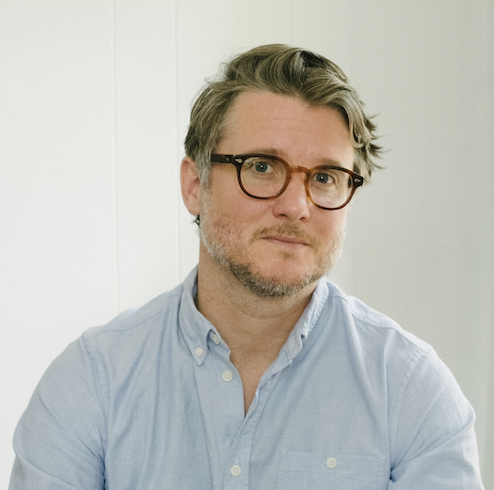How We Can Reduce the Power of False Narratives (Third in a series on False Narratives)
In this third part of our series on conspiracy theories and other false narratives, we'll look at actions society can take to defend itself. We'll focus on what journalists and educators can do, what technology companies can do, and what government and individuals can do.
Our speaker, Dr. Samuel Woolley, will discuss media literacy, technologies for quick detection and management of false narratives, the role of governmental regulation, and actions we can take as individuals.
This will be an intense, information-packed event; be sure to bring your questions or send them to us in advance at personalgrowthmlf@gmail.com. You might also want to review the first event in this series, "Why have False Beliefs and Conspiracy Theories Become So Powerful?" before attending.
MLF ORGANIZER
Eric Siegel
NOTES
A Personal Growth Member-led Forum program. Forums at the Club are organized and run by volunteer programmers who are members of The Commonwealth Club, and they cover a diverse range of topics. Learn more about our Forums.
Photo courtesy the speaker.
The following resources were provided by the moderator and the speaker; The Commonwealth Club is not responsible for the content or the links.
Resources and References
Books (some are free downloads):
- Carl T. Bergstrom and Jevin D. West. (2020) Calling Bullshit: The Art of Skepticism in a Data-Driven World. Random House.
- John Cook. The COVID-19 Vaccine Communication Handbook. https://hackmd.io/@scibehC19vax/home
- Stephan Lewandowsky and John Cook. (2020) The Conspiracy Theory Handbook http://sks.to/conspiracy
- Dan Pfeiffer. (2022) Battling the Big Lie. Twelve.
- Samuel Woolley. (2020) The Reality Game: How the Next Wave of Technology Will Break the Truth. PublicAffairs, Hachette Book Group.
- Samuel Woolley. (2022) Manufacturing Consensus: Understanding Propaganda in the Era of Automation and Anonymity. Yale University Press.
Detecting False Information:
- https://thinkingispower.com/
- https://eavi.eu/beyond-fake-news-10-types-misleading-info/
- Elyse Samuels, Sarah Cahlan, Emily Sabens. How to Spot a Fake Video. Washington Post, 19 Nov 2021. https://www.washingtonpost.com/politics/2021/03/19/how-spot-fake-video/
- https://www.hhs.gov/surgeongeneral/reports-and-publications/health-misi…
- https://www.bellingcat.com/resources/2021/11/01/a-beginners-guide-to-so…
- https://www.climatechangecommunication.org/wp-content/uploads/2020/10/D…
General:
- Conor Friedersdorf. How ‘Big Disinformation’ Can Overcome Its Skeptics. The Atlantic. 21 April 2022. https://www.theatlantic.com/ideas/archive/2022/04/anti-disinformation-l…
- Melinda Wenner Moyer. Schooled In Lies: Schoolkids Are Falling Victim ... Scientific American, 326(2), 34-39.
- The Atlantic. Disinformation and the Erosion of Democracy conference, 2022. https://www.theatlantic.com/live/disinformation-democracy-uchicago-conf…
Civic and Media Education:
- Stanford University "Civic Online Reasoning" curriculum https://cor.stanford.edu
- News Literacy Project https://newslit.org/
- Young Skeptics https://centerforinquiry.org/youngskeptics/
- Alan Alda Center for Communicating Science https://www.aldacenter.org/
Constructive Communications:
- MIT Center for Constructive Communication https://www.ccc.mit.edu/
- Disinformation Defense League https://www.disinfodefenseleague.org/
- UNESCO training: https://en.unesco.org/themes/gced/thinkbeforesharing
- Citizen Connect https://citizenconnect.us/
- Living Room Conversations https://livingroomconversations.org/
- Civic Listening Corps and Junkipedia https://ati.io/civic-listening-corps/
- Ground News (compares media sources) https://ground.news/about
Further Reading:
- Daniel Arnaudo, Samantha Bradshaw, Hui Hui Ooi, Kaleigh Schwalbe, Amy Studdart, Vera Zakem, Amanda Zink. Combating Information Manipulation: A Playbook for Elections and Beyond. National Democratic Institute, International Republican Institute, Stanford Internet Observatory. https://www.ndi.org/sites/default/files/InfoManip%20Playbook%20updated%…
- Paul M. Barrett, Mariana Olaizola Rosenblat. (2022) Spreading The Big Lie: How Social Media Sites Have Amplified False Claims of U.S. Election Fraud. NYU Stern Center for Business and Human Rights. https://www.scribd.com/document/595464697/Spreading-the-Big-Lie-Social-…
- Yochai Benkler, Hal Roberts, Robert Faris Network Propaganda. (2018) Oxford Academic. (Chapter 13, "What Can Men Do Against Such Reckless Hate," available free: https://academic.oup.com/book/26406/chapter/194776703)
- Ullrich K. H. Ecker, Stephan Lewandowsky, John Cook, Philipp Schmid, Lisa K. Fazio, Nadia Brashier, Panayiota Kendeou, Emily K. Vraga, Michelle A. Amazeen. The Psychological Drivers Of Misinformation Belief And Its Resistance To Correction. Nature Reviews Psychology, 1, 13-29. https://www.nature.com/articles/s44159-021-00006-y.pdf
- Ryan C. Moore, Jeffrey T. Hancock. A Digital Media Literacy Intervention For Older Adults Improves Resilience To Fake News. Nature Scientific Reports 12, Article 6008 (2022). https://rdcu.be/cLIAg
- Matthew P. Rowe, B. Marcus Gillespie, Kevin R. Harris, Steven D. Koether, Li-Jen Y. Shannon, Lori A. Rose. Redesigning a General Education Science Course to Promote Critical Thinking. CBE - Life Sciences Education, 14(3), 1-12. https://www.lifescied.org/doi/full/10.1187/cbe.15-02-0032
- Harvard Kennedy School Misinformation Review https://misinforeview.hks.harvard.edu/
- Nick Monaco and Samuel Woolley. (2022). Bots. Polity Press, Digital Media and Society series.
- Philip Howard and Samuel Woolley (Eds.). (2018). Computational Propaganda: Political Parties, Politicians, and Political Manipulation on Social Media. Oxford University Press, Oxford Studies in Digital Politics series

Dr. Samuel Woolley
Ph.D., Assistant Professor and Program Director of the Propaganda Research Lab, University of Texas-Austin; Author, The Reality Game: How the Next Wave of Technology Will Break the Truth, Computational Propaganda, and numerous academic and popular articles

Eric Siegel
Chair, Personal Growth Member-led Forum, The Commonwealth Club of California—Moderator

